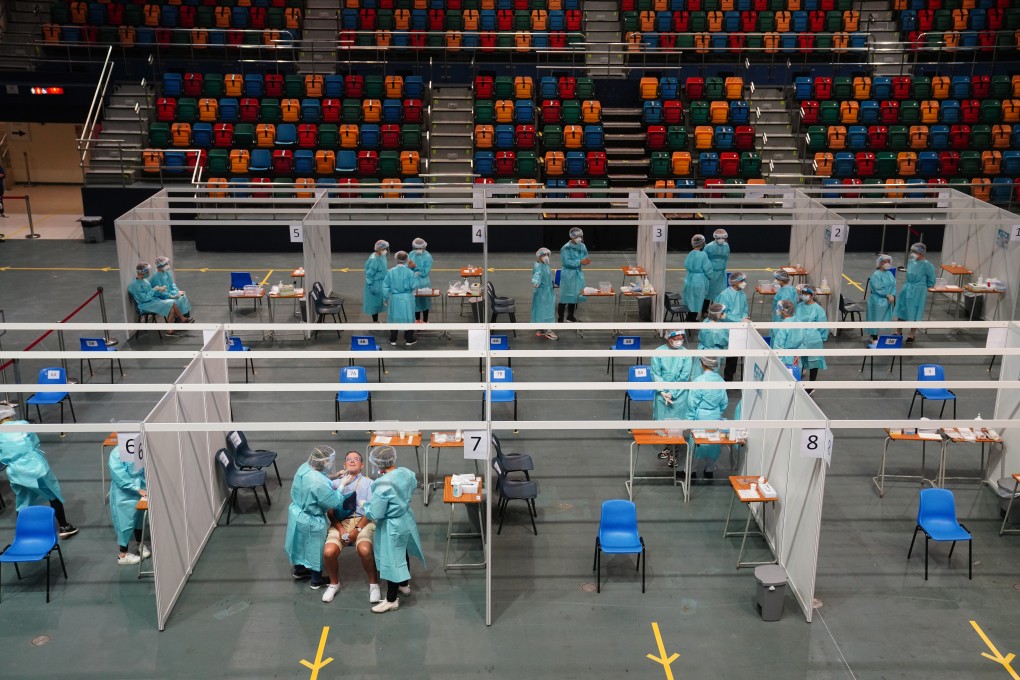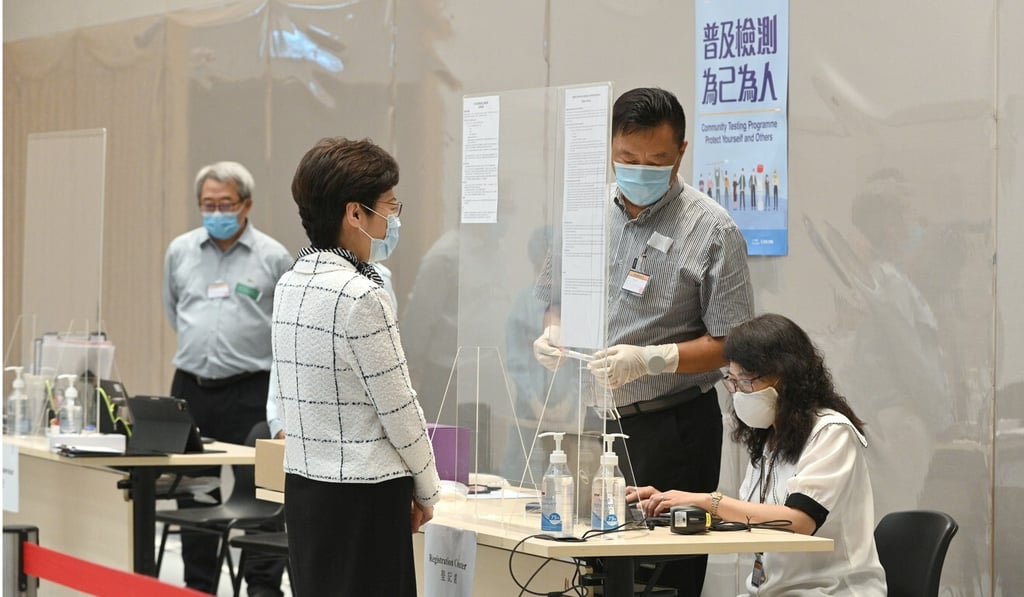Coronavirus: 126,000 Hong Kong residents take Covid-19 test on ‘smooth’ first day of mass screening scheme despite calls for boycott from opposition activists
- Some 674,000 out of a population of 7.5 million had signed up for the one-off, free and voluntary exercise as of 8pm on Tuesday
- Steady stream of people took the tests throughout the day, many of them middle-aged or senior citizens

As of 8pm, some 674,000 out of a population of 7.5 million had signed up for the one-off, free and voluntary exercise. The testing programme at 141 centres across the city is set to run for a week but can be extended for seven more days if there is enough demand.
While small queues formed at some testing centres before they opened at 8am, it appeared to be relatively quieter at others, but a steady stream of people took the tests throughout the day, many of them middle-aged or senior citizens.

Secretary for the Civil Service Patrick Nip Tak-kuen, the official in charge of the programme, said the daily testing quotas for all 141 centres would be raised from Thursday after reviewing their capacities.
“The overall operation of the centres was smooth,” he said, noting that more than 90 per cent of those who registered for the tests online had shown up for them on Tuesday.